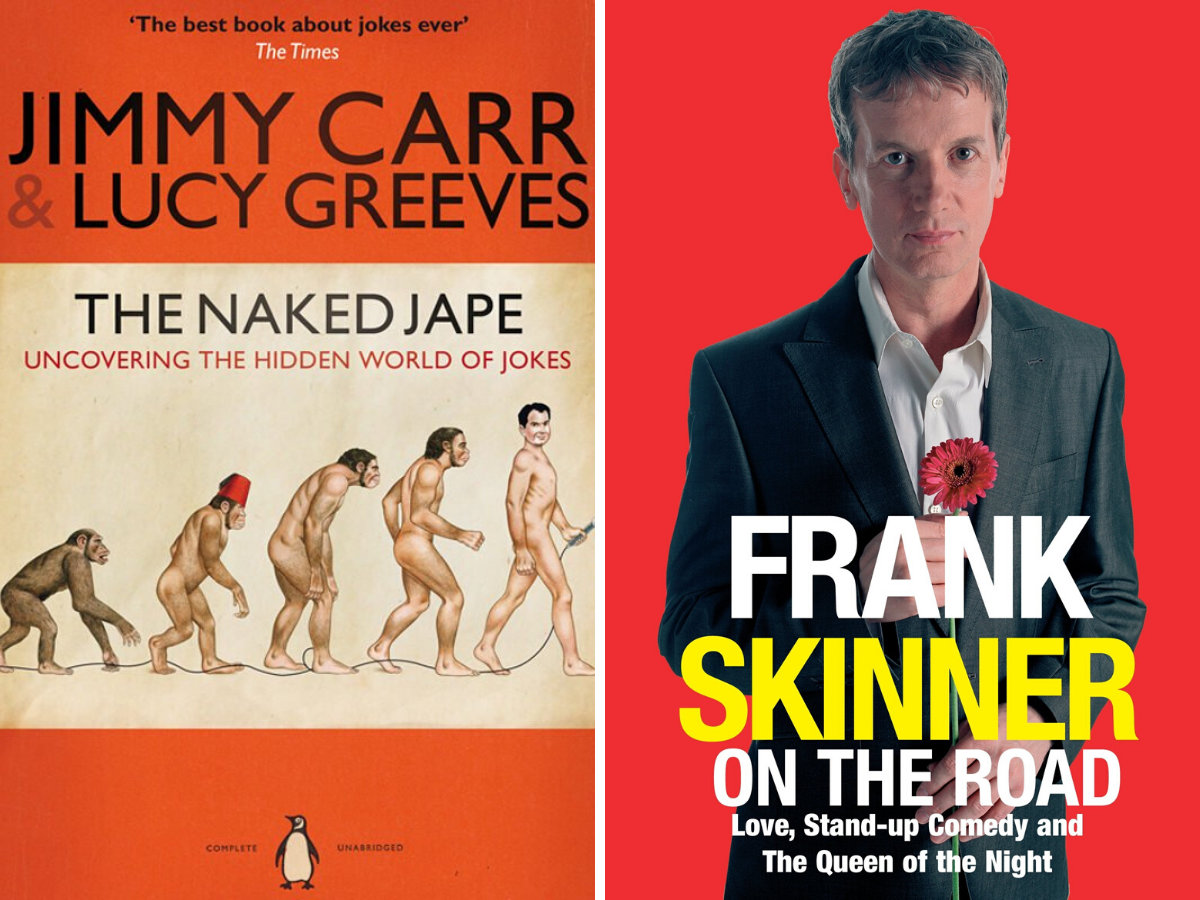In addition to comic books and films, I’ve also been reading actual ‘proper’ books with no pictures or anything, so these few notes about them should not be seen as an attempt to impress you with the fact that I can get through entire picture-less books. Having enjoyed the Justice League of America story The Tornado’s Path [LINK], and some of the novelistic elements of Identity Crisis [LINK], I thought I would try an actual novel by Brad Meltzer. I picked up The Book of Fate, because it was the latest in paperback – it is a well-researched conspiracy thriller about a presidential aide (the book mostly takes place after the president has left office, and the details of what happens afterwards and how life changes were very interesting) but it was nothing more than a well-written ‘airport’ thriller. I indulged in some geekery with Wiffle Lever To Full! by Bob Fischer, about a man attending nearly a dozen geek-related events (conventions and other things), including Doctor Who, Blake’s 7, The Prisoner, Discworld and Red Dwarf. It’s mildly interesting but doesn’t really delve underneath the skin, and gives a surface glance at the world of people who enjoy the television/film genre obsessions.
Two books that were more satisfying were books written by comedians, but looking at different aspects of comedy. The first book was The Naked Jape by Jimmy Carr & Lucy Greeves, about the concept of jokes and telling jokes through history. Automatically, it runs the risk of being terminally dry and academic, but it manages to be informative and educational as well as extremely funny in its own right (and that doesn’t include the footnote jokes on every page). Each chapter handles different areas of the joke – chapters on the importance of jokes, the science of laughter, comedians in history, how children learn to joke, the gender divide, offensive jokes, ethnic jokes, political jokes, and the crossover with legal implications – examining various aspects of the joke, explaining and illustrating these points along the way. Carr, who is seen as a bit of Bob Monkhouse for the noughties, is a constructor of exquisite one-liners, even if an entire show of them can be a bit wearing. Here, his sense of humour and personal perspective of the business provides an illuminating insight into comedy. The two authors do a great job of providing a textbook about the joke without losing a sense of humour, or their own. And, if need be, you can choose from the 450 jokes included as examples, including two of my favourites:
How do you stop a dog humping your leg? Pick it up and suck its cock.
According to Freud, what comes between fear and sex? Fünf.
The other book is On The Road by Frank Skinner, an autobiographical book about his return to stand-up comedy after 10 years of doing television (and now longer doing TV on a regular basis). His autobiography was amazing – extremely well written, honest, fascinating and providing another side to the comedian most associated with the ‘New Lads’ concept of the 1990s (something he disagrees with). Here, he details how he worked through the material itself and the gigs, and how it affects him as a person and his relationship with people and his girlfriend. There are four sections – Edinburgh; Looking Backwards And Forwards; The Tour; Aftermath – which examine his run at the Edinburgh Fringe Festival (after some warm-up gigs in pubs and clubs); an honest appraisal of what has happened and what he sees now he is 50 (including his seven years of the talk show and the fact that the second series of his sitcom, which was filmed, was never aired – on ITV!); taking the show around the country, from an hour-long version to the two-hour show needed for the tour; and what happens after all of this. He also talks about his relationship very openly (I hope his girlfriend is all right with that) and about his mental state while on tour, and his ‘Weirdo Loner’ status. The tour is handled with equal candidness, detailing his relationship with his tour manager and how paranoid a comedian is – he never reads any reviews ever, including the ones included at the end of the book. It is a revealing account from a comedian who can express himself lucidly in clear and funny prose, while still being hilariously and filthily funny with the sections of his routines that he includes and dissects in the process. Very good indeed.




